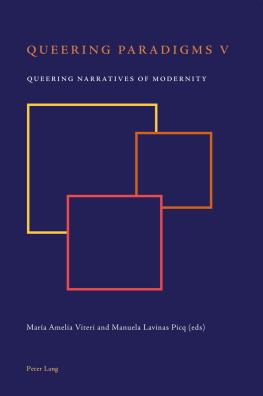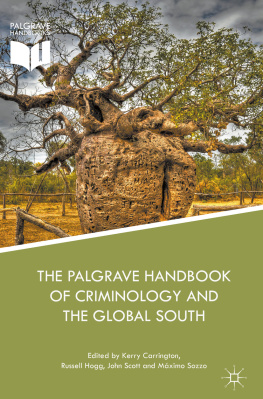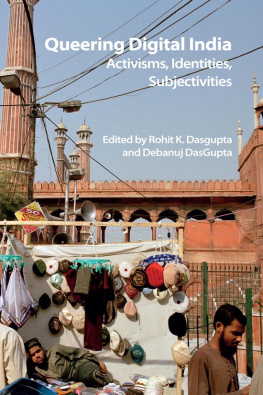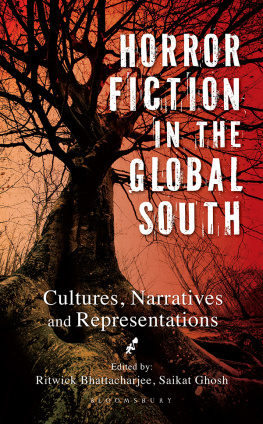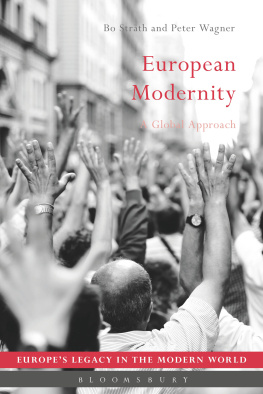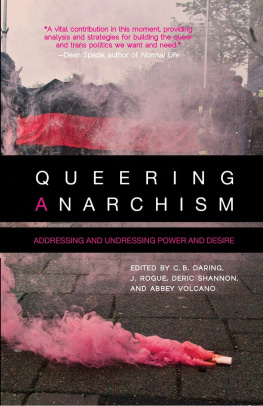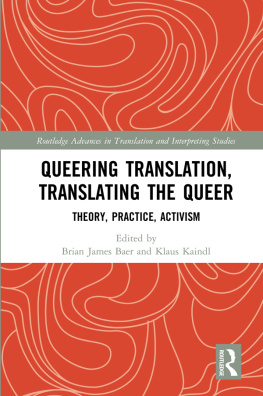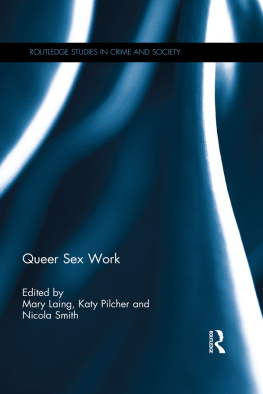Contents
Page List
QUEERING PARADIGMS
Series Editor
B. Scherer, Canterbury Christ Church University, UK
PETER LANG
Oxford Bern Berlin Bruxelles Frankfurt am Main New York Wien
QUEERING PARADIGMS V
QUEERING NARRATIVES OF MODERNITY
Mara Amelia Viteri and Manuela Lavinas Picq (eds)
With Marcelo Aguirre and Ana Mara Garzn
PETER LANG
Oxford Bern Berlin Bruxelles Frankfurt am Main New York Wien
Bibliographic information published by Die Deutsche Nationalbibliothek.
Die Deutsche Nationalbibliothek lists this publication in the Deutsche Nationalbibliografie; detailed bibliographic data is available on the Internet at http://dnb.d-nb.de.
A catalogue record for this book is available from the British Library.
Library of Congress Control Number: 2015950321
ISSN 2235-5367
ISBN 978-3-0343-1924-9 (print)
ISBN 978-3-0353-0768-9 (eBook)
Peter Lang AG, International Academic Publishers, Bern 2016
Hochfeldstrasse 32, CH-3012 Bern, Switzerland
All rights reserved.
All parts of this publication are protected by copyright.
Any utilisation outside the strict limits of the copyright law, without the permission of the publisher, is forbidden and liable to prosecution.
This applies in particular to reproductions, translations, microfilming, and storage and processing in electronic retrieval systems.
This publication has been peer reviewed.
About the author(s)/editor(s)
M ARA A MELIA V ITERI holds a PhD in Cultural Anthropology from American University in Washington DC, with a focus on race, gender and social justice, and is currently Professor of Anthropology at Universidad San Francisco de Quito (USFQ). Her research bridges citizenship, belonging and identity within a transnational and intersectional framework that highlights sexuality and gender at its core. Her work incorporates visual arts as additional tools that bring academia closer to activists and local communities concerns, and has informed both academic knowledge and public policy. Moving between the geo-political spaces of the US and Ecuador through research and teaching, she speaks from the position of a transnational herself. She is the author of Desbordes: Translating Racial, Ethnic, Sexual and Gender Identities across the Americas.
M ANUELA L AVINAS P ICQ is Professor of International Relations at Universidad San Francisco de Quito (USFQ), Ecuador. She has been Member at the Institute for Advanced Study (2014), Lowenstein Fellow at Amherst College (2011), and a fellow at the Woodrow Wilson Center (2005). She is the co-editor of Sexualities in World Politics and publishes both in scholarly journals and international media.
About the book
The authors of this edited volume use a queer perspective to address colonialism as localized in the Global South, to analyse how the queer can be decolonized and to map the implications of such conversations on hegemonic and alternative understandings of modernity. This book is distinct in at least four ways. First, its content is a rare blend of original scholarly pieces with internationally acclaimed art. Second, it is a volume that blends theoretical debates with policy praxis, filling a gap that often tends to undermine the reach of either side at play. Third, its topic is unique, as sexual politics are put in direct dialogue with post-colonial debates. Fourth, the book brings to the forefront voices from the Global South/non-core to redefine a field that has been largely framed and conceptualized in the Global North/core.
This eBook can be cited
This edition of the eBook can be cited. To enable this we have marked the start and end of a page. In cases where a word straddles a page break, the marker is placed inside the word at exactly the same position as in the physical book. This means that occasionally a word might be bifurcated by this marker.
| ix
Is the project of queering modernity an emancipatory, anti-normative project, one that leads to a decolonial future? Or is queerness itself, with its linguistic Anglophone origins and Eurocentric assumptions, implicitly an imperial project that serves primarily to institutionalize a Northern/Western-imposed sexual modernization agenda in the greater global South? Similarly, how do notions about queerness or homosexuality become terrains of dispute for broader struggles concerning Westernization, globalization, sovereignty or secularization? How can we reclaim and maintain the emancipatory potential of queering modernity in epistemological and methodological terms? These are some of the pivotal questions that implicitly or explicitly inform the contributions to this path-breaking and inspirational volume.
As a product of the Queering Paradigms V (QP5) conference held in Quito, Ecuador in February 2014, Queering Narratives of Modernity pushes the boundaries of how we think about queer studies and post/decolonial studies, with particular emphasis on epistemological framings of queerness from/within the greater global South, and as transcending global South/ ix | x North geopolitical, linguistic, cultural and epistemological borders. QP5 drew upon various kinds of interventions activism, forms of artistic and cultural expression and academic dialogues taking place in the Andes, in South America, and the Amricas and beyond. And it is, precisely, this inclusionary gesture, the experiential and critical polyphony that characterizes this volume that, in our opinion, deepens the understanding of post/decolonial queer studies produced in and about the greater global South. Chapter contributions are in Spanish and English, marking an unequivocal challenge to Anglophone linguistic hegemonies and introducing new discussions of queerness as an anti-normative project in regional activism and intellectual production. Similarly, the volume includes contributions on, for example, critical understandings of heterosexuality in South Africa (Mphaphuli), the political usage and (re)signification of queer in contemporary Spain (Trujillo), and the relationship of homophobia to Islamophobia (Mahman), thus contributing as well to broader discussions about comparative queer post/decolonial studies. Moreover, it exemplifies the best of intersectional approaches in understanding queerness from post/decolonial perspectives, including examinations of queerness as an identitarian project; queerness as method; queerness as an anti-normative project challenging, rupturing, or resignifying colonial binaries; and/or queerness as an epistemology that informs our personal and political practices. Chapters address individual and collective engagements with gender, sexuality and other markers of identity as they are manifest in cultural representations, including in legal, policy, literary and cultural frameworks; and as they inform daily life, notions of kinship, family and intimacy, labor, and political affect.
Queering Narratives of Modernity raises several distinct yet related questions: What does it mean to queer narratives of modernity, such as narratives of the nuclear family, marriage, the discourse of identity as framed in legal and policy discourse, or of sexual practices thought to run against the grain of a reproductive imperative, be it those governing societal norms or national ones? Is modernity typically understood as heterosexual, and likewise, as gender normative? To what extent is it possible to queer the institution of heterosexuality itself? How can we queer narratives of modernity in such a way to reveal their sexual, gender, racial, and class contradictions, particularly within epistemological frames that x | xi emanate from regions other than the United States and Western/Northern Europe? How can we

